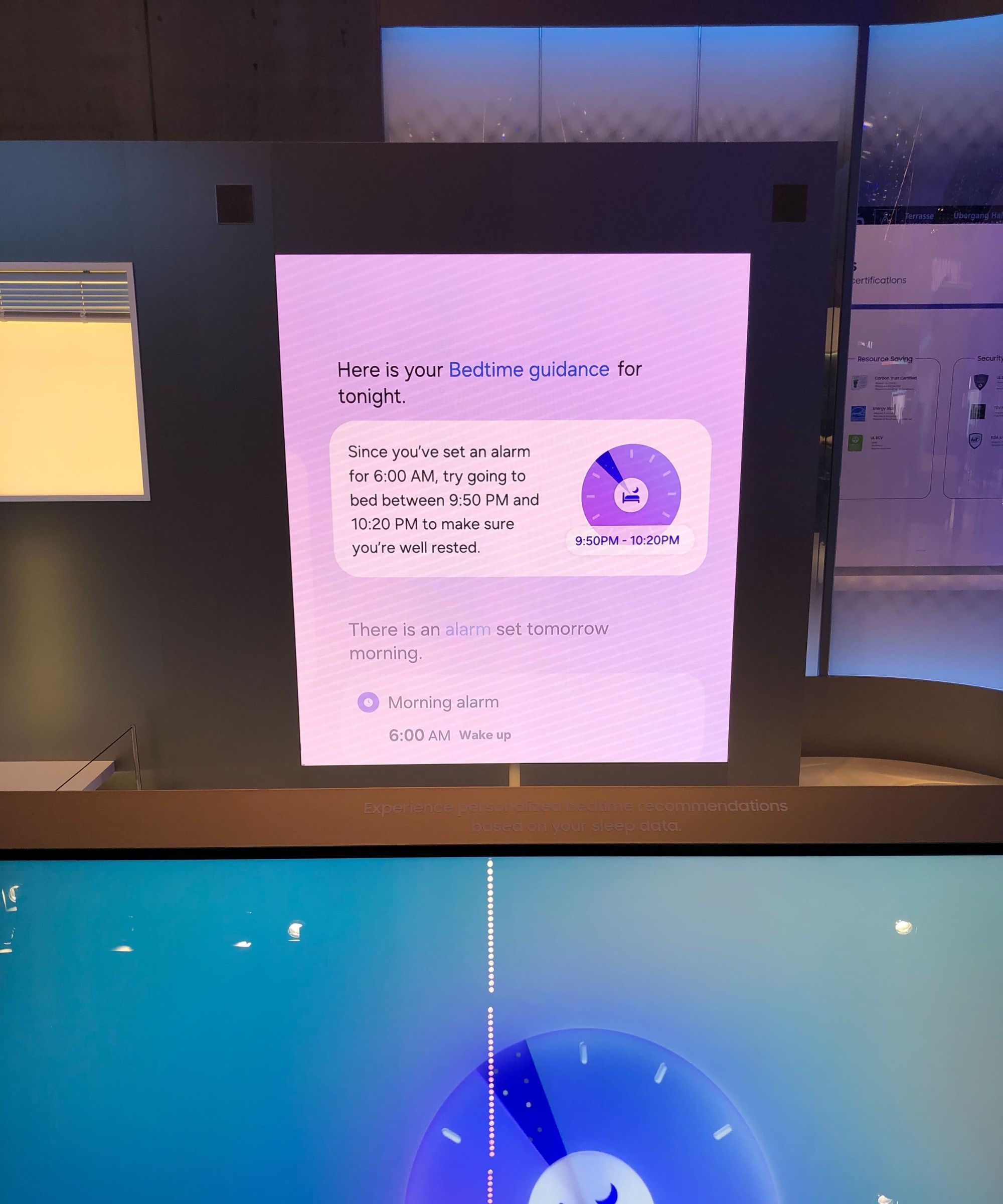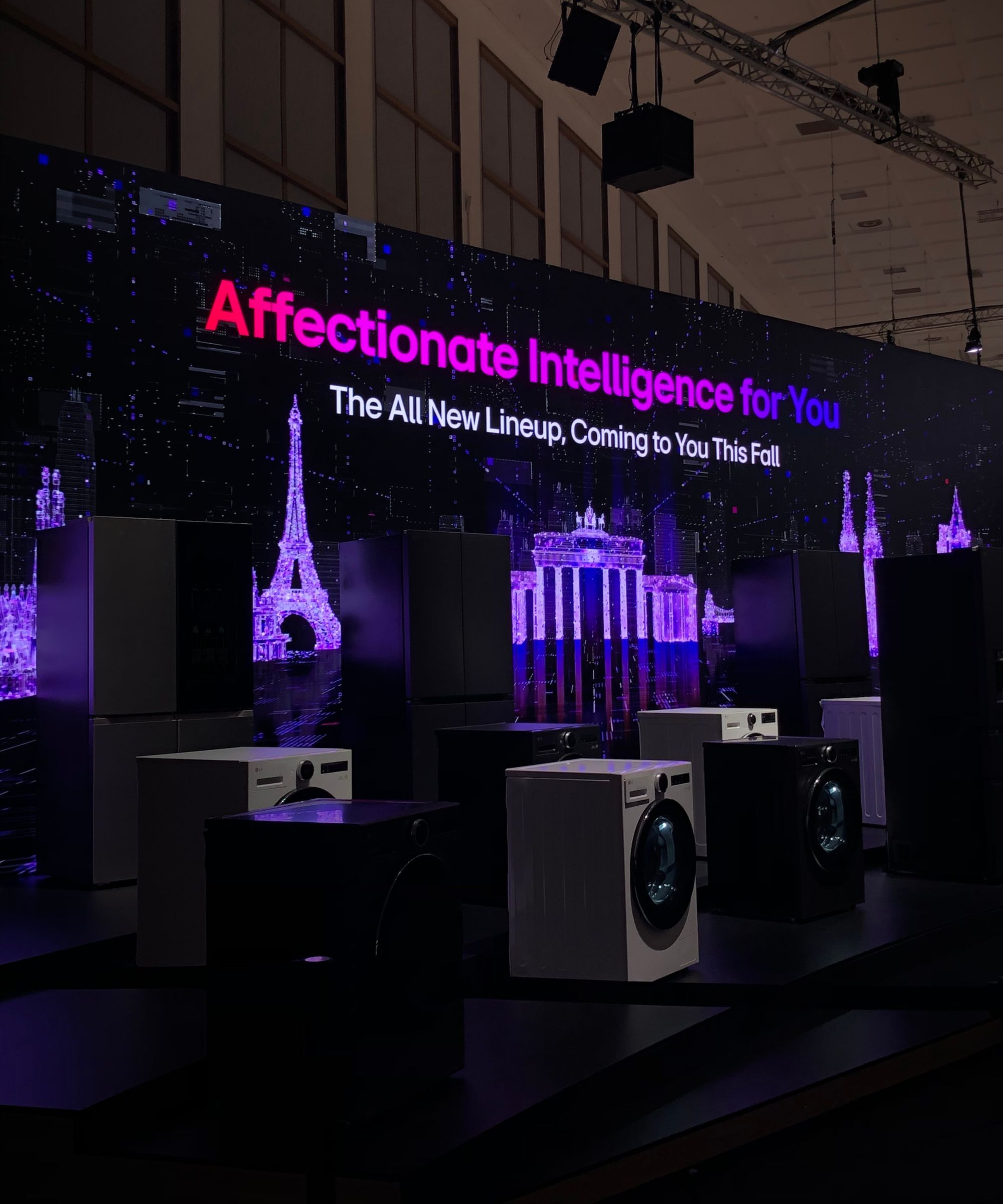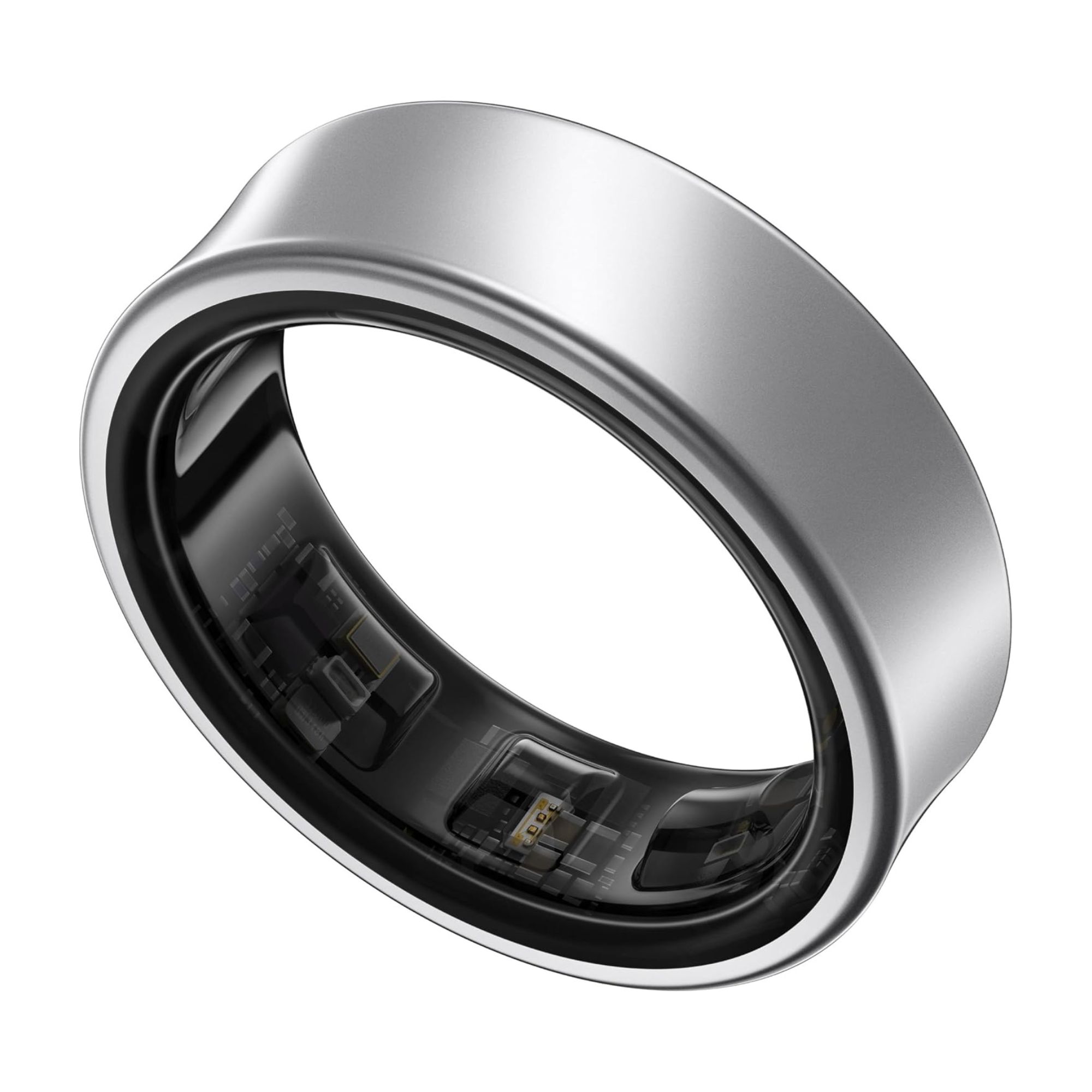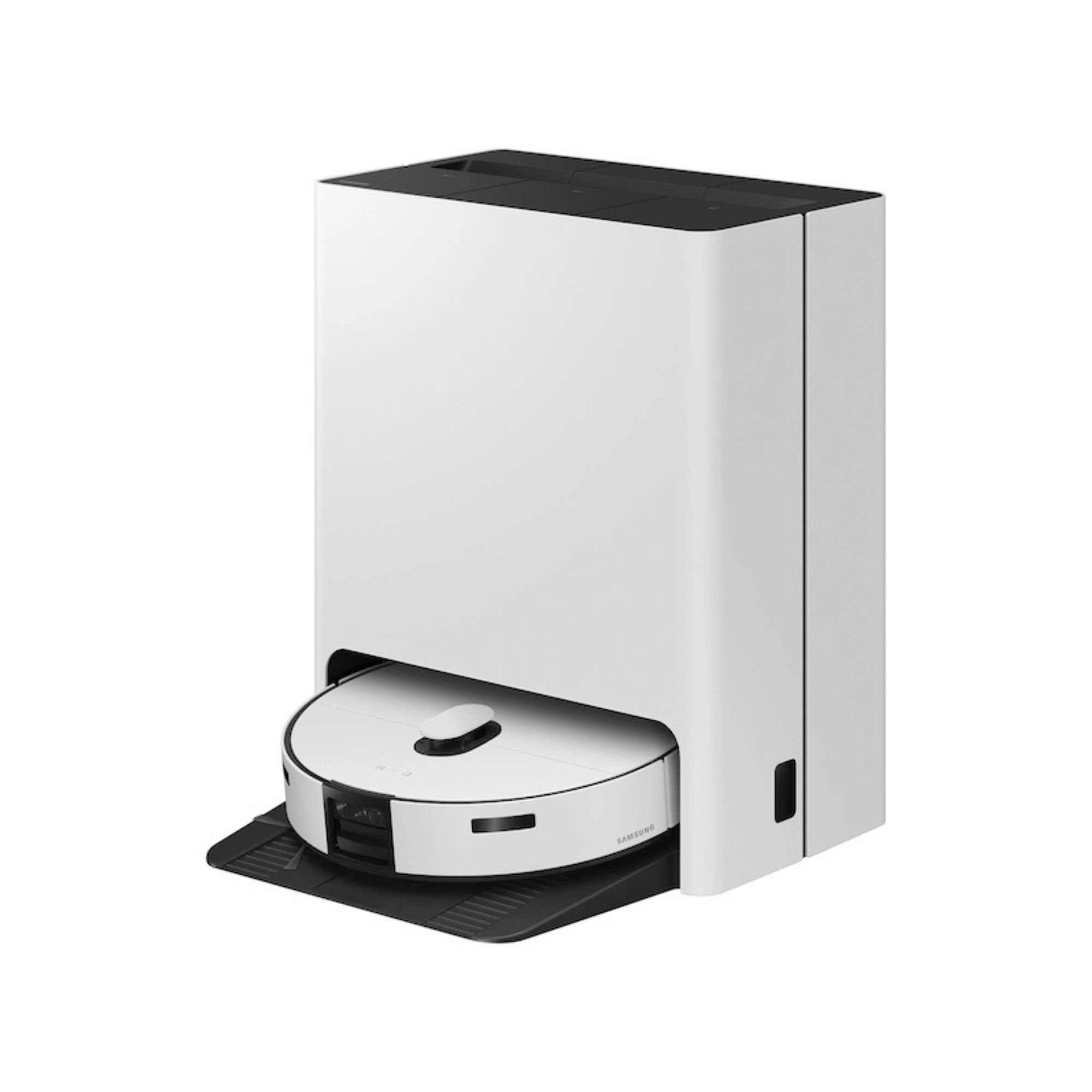
Samsung has unveiled its most advanced smart home AI yet – a system that can read into your daily habits, spot when your dog is restless, and even alert you if an elderly family member may need checking in on.
It marks a significant leap from AI voice assistants and automated cleaning into something far more sophisticated: A home that anticipates needs, smooths routines, and supports your wellbeing.
At this year's IFA in Berlin, AI is everywhere. The biggest and most technologically advanced brands in the world are implementing artificial intelligence into every facet of our lives, from the best robot vacuums that monitor our movements to fridge-freezers that can learn our daily schedules.
AI in the home is learning more about our habits, health and wellbeing than ever
Two of the most striking AI-powered announcements at IFA are Samsung Family Care and Samsung Pet Care, proving that the smart home gadgets that transform our lives are dramatically evolving.
Using Samsung's Galaxy smartphones and the SmartThings App, you can check on your loved ones' activity and be alerted if anything unusual is happening. If AI detects it first, the SmartThings app will send you a notification to check on them. It'll also give you reassuring notifications, such as 'Mom is spending the day in a healthy way.'
And, with the Samsung Bespoke Jet Bot Combo AI Robot Vacuum, you can monitor your home from anywhere, including detailed information on your pets' activity. If your dog is bored or hasn't been walked enough that day, it will alert you – and even give you the option to send an automated message to another member of your household to walk them.
It marks an exciting, albeit somewhat unnerving, move towards home tech that overtly observes us. The AI advances I am seeing at the press preview in IFA, the world's biggest consumer technology innovation conference, show a trend of AI cleaning and other home appliances being programmed to notice patterns in human behavior. This means it can learn our schedules, and anticipate our needs – taking on some of our mental and emotional labor.
Design expertise in your inbox – from inspiring decorating ideas and beautiful celebrity homes to practical gardening advice and shopping round-ups.
Among Samsung's new features is a sleep assistant that analyses REM data from a Galaxy Ring or Galaxy Watch8 for three nights, then recommends the optimal bedtime for your chosen wake-up time.

By measuring your heart rate, blood oxygen, and skin temperature, the Galaxy Ring's biometric data informs accurate sleep guidance.
The system can also coordinate smart blinds, music, and air conditioning into a single ‘off’ button, streamlining a bedtime or morning routine in seconds. With compatibility across 80% of third-party devices, such as Philips Hue or Sonos Samsung’s ecosystem promises to connect almost every appliance in the house.
But as these devices become more intuitive, they also become more intrusive – collecting behavioral and biometric data.
As Fergal Glynn, Chief Marketing Officer and AI Security Advocate at Mindgard, says, ‘This is important because smart home AI knows things like your sleep habits, your pet’s moods, and even your relatives’ wellbeing. Without good protections, this can lead to privacy violations or even security threats if hackers get access.’
To address these concerns, Samsung has built its system on Knox, the security platform trusted by US and German governments. Knox Vault ensures sensitive data never leaves your device, storing it on an isolated chip rather than in the cloud. Knox Matrix, meanwhile, uses blockchain to detect and contain threats across a connected home. If one device – such as an air conditioner – were compromised, Knox would block access to others and prevent data from being exposed.
Essentially, Samsung can't access its consumer home tech AI's data, and the devices in your home will never upload it to the brand.
Knox is installed on every Samsung smart device by default, offering what the brand calls ‘an ecosystem of security’ alongside convenience. Third-party devices are protected, too, as all third-party information passing through the Samsung hub is encrypted and converted into Samsung’s own coding for protection.
Still, as AI Security Advocate Fergal warns, consumer trust depends on ongoing transparency, ‘As tech firms like Samsung aim to fill billions of homes with AI, how they handle our data shapes trust and security for everyone.
'People must be able to delete their data at any time. Poor data handling looks like collecting more than what is needed, or sharing it without consent. Weak encryption and rare security updates often open the door to hackers.’
As we're reimaging the sophistication of the smart home setup, data protection will continue to shape public perception of AI – and whether individuals trust these giant tech brands.
Samsung isn’t alone in reimagining how AI fits into daily life. At LG's IFA exhibit, orchestral music plays while AI fridge-freezers and washing machines light up in unison. Their new fridge-freezer can predict when you typically open the door and pre-cool food in advance to maintain the internal temperature. And their best washing machines and dryers sense fabrics and soil levels so that the AI software 'cares like you would.'

AI is the overarching trend at this year's IFA in Berlin.
Miele has also launched their new best dishwasher with AI diagnostics that allows users to fix common faults without calling a technician, saving money and unnecessary service visits.
Its connected cookware also uses sensors and Bluetooth to regulate temperature and prevent spills – from keeping milk rice perfectly stirred to reducing energy use by up to 30%.
Elsewhere at IFA, Roborock announced a new 4-in-1 cleaning system designed to do the same.
Taken together, these innovations signal a shift in home technology – away from machines that simply perform tasks and towards appliances that adapt to our lives. They're no longer performing physical tasks, but doing the mental legwork, too.
Whether that future feels empowering or scary will depend not just on how useful the features are, but on whether tech giants like Samsung, LG and Miele prove they can keep our most personal data safe.
Explore Samsung's AI Home announcements at IFA 2025.
What to shop
If you're keen or intrigued by a connective, adaptable home environment, these smart gadgets will help you create your own AI-supported home.

To improve your sleep quality, the Galaxy Ring tracks health data such as your heart rate and skin temperature, which can also aid fitness goals.

Not only with this robot vacuum and mop your floors, but it can monitor your home while you're out, checking on your pets and family while improving home security.

Rather than relying on your smartphone, using a Galaxy Tab can create a central hub for all things AI and smart home, that the kids and family can use while you're out.
Next, learn more about the smart home must-haves that can change your life at home.

Dan is the Home Tech Editor for Homes & Gardens, covering all things cleaning, sound, smart home, and air treatment across the Solved section.
Having worked for Future PLC since July 2023, Dan was previously the Features Editor for Top Ten Reviews and looked after the wide variety of home and outdoor content across the site, but their writing about homes, gardens, tech and products started back in 2021 on brands like BBC Science Focus, YourHomeStyle and Gardens Illustrated.
They have spent more than 400 hours testing and reviewing vacuums, soundbars and air purifiers for Homes & Gardens.
Dan has a BA in Philosophy and an MA in Magazine Journalism. Outside of work, you'll find them at gigs and art galleries, cycling somewhere scenic, or cooking up something good in the kitchen.
